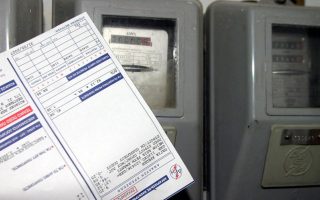Gov’t gives up on farms’ objective value

The government has practically admitted its inability to calculate the taxable value of farmland by extending its exemption from the supplementary property tax for another two years, according to a new tax bill tabled in Parliament on Friday. The draft law also provides for the lifting of professional data protection for the professional categories it applies to, upon the request of the head of the Independent Authority of Public Revenue.
The supplementary tax is the property tax on top of ENFIA paid by owners whose properties add up to more than 200,000 euros in objective value terms. In 2015 the government and the country’s creditors extended the supplementary tax to include farmland too. However, this was not implemented in practice last year so farmland had to be exempted, and it will apparently be the same for 2017 and 2018 too, as the state has yet to find a reliable method of assessing its taxable value.
Last year farmland was only exempted from the tax just before the issue of the pay notices, as the projections made by the IAPR showed huge tax amounts that would inflict a major blow on farmers.
According to the relevant report by the State General Accounting Office, the exemption of farmland is set to lead to a total loss of state revenues amounting to some 460 million euros – a burden lifted off taxpayers’ shoulders.
The Finance Ministry actually claimed that the exemption was deemed necessary in order for taxpayers to have ample time to search through forest maps and make any corrections required to the classification and registering of their farms. Yet is it more than obvious that the ministry cannot calculate the tax and is trying to avoid the ire of farmers.
Separately, the new bill allows the IAPR chief to demand information on the financial transactions of a taxpayer under certain conditions from third parties previously bound by professional data protection laws. This concern both transactions with those taxpayers and those made through the third parties.
This clause mainly concerns lawyers and their relationships with their clients, as their code dictates they should not reveal any personal details on their clientele.





